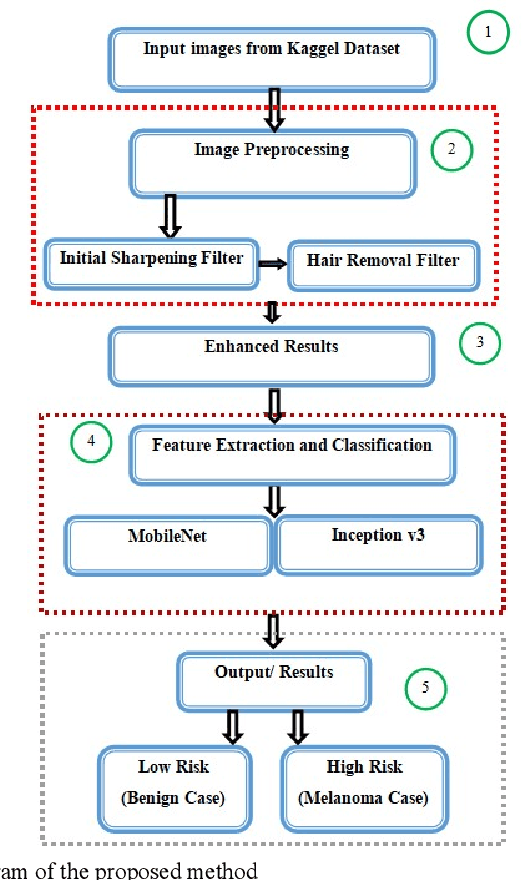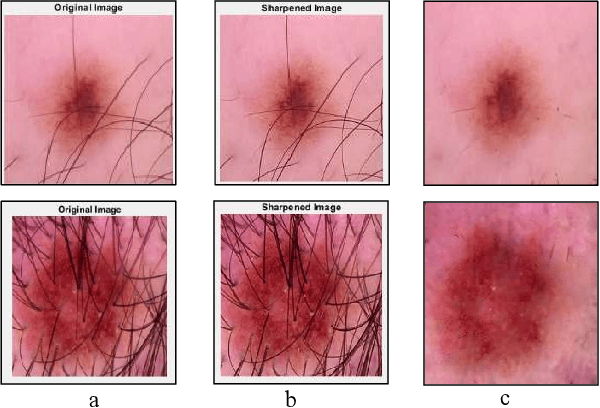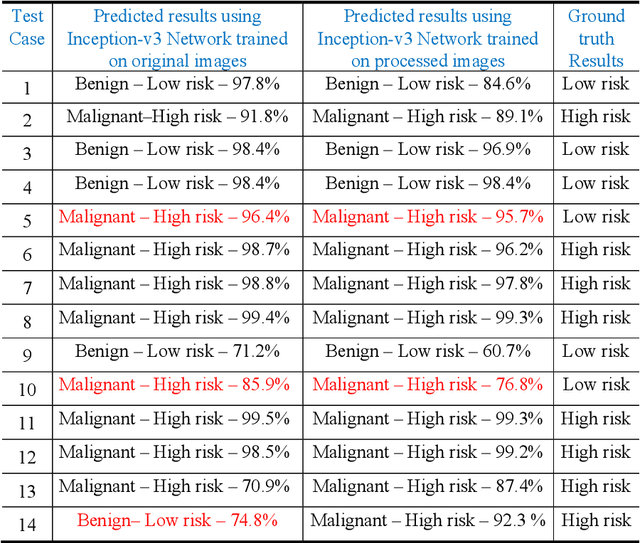Advanced Deep Learning Methodologies for Skin Cancer Classification in Prodromal Stages
Paper and Code
Mar 13, 2020



Technology-assisted platforms provide reliable solutions in almost every field these days. One such important application in the medical field is the skin cancer classification in preliminary stages that need sensitive and precise data analysis. For the proposed study the Kaggle skin cancer dataset is utilized. The proposed study consists of two main phases. In the first phase, the images are preprocessed to remove the clutters thus producing a refined version of training images. To achieve that, a sharpening filter is applied followed by a hair removal algorithm. Different image quality measurement metrics including Peak Signal to Noise (PSNR), Mean Square Error (MSE), Maximum Absolute Squared Deviation (MXERR) and Energy Ratio/ Ratio of Squared Norms (L2RAT) are used to compare the overall image quality before and after applying preprocessing operations. The results from the aforementioned image quality metrics prove that image quality is not compromised however it is upgraded by applying the preprocessing operations. The second phase of the proposed research work incorporates deep learning methodologies that play an imperative role in accurate, precise and robust classification of the lesion mole. This has been reflected by using two state of the art deep learning models: Inception-v3 and MobileNet. The experimental results demonstrate notable improvement in train and validation accuracy by using the refined version of images of both the networks, however, the Inception-v3 network was able to achieve better validation accuracy thus it was finally selected to evaluate it on test data. The final test accuracy using state of art Inception-v3 network was 86%.
 Add to Chrome
Add to Chrome Add to Firefox
Add to Firefox Add to Edge
Add to Edge